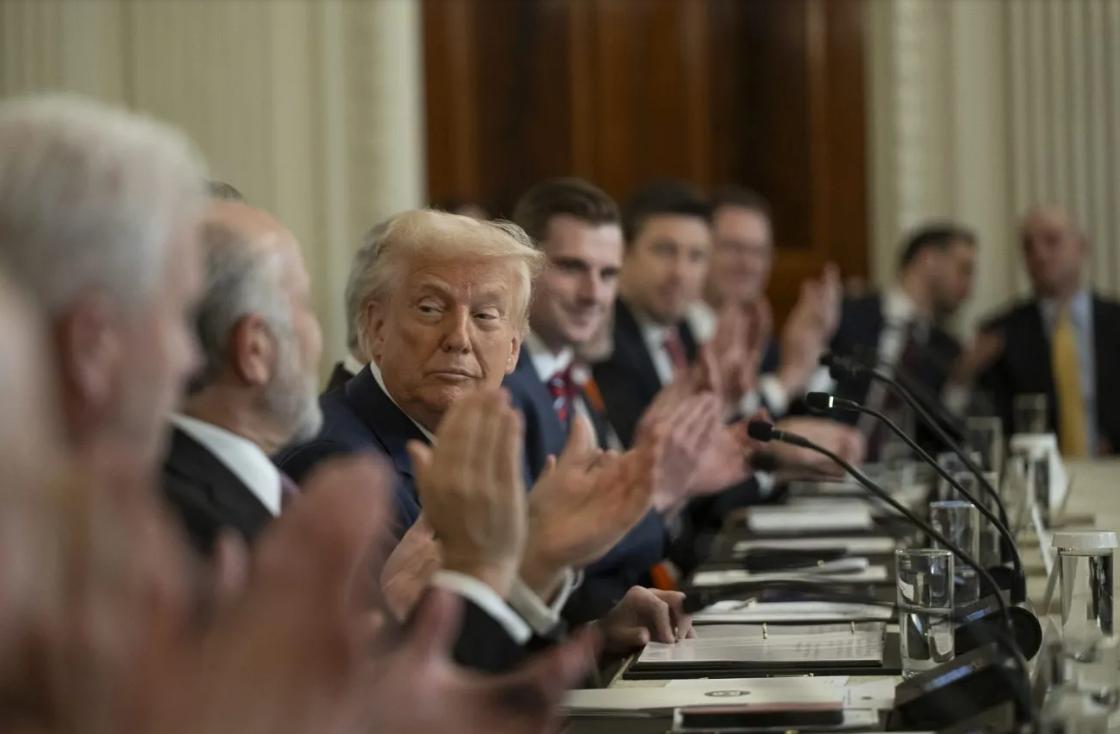
The White House's Cryptocurrency Summit had just concluded late Friday afternoon, with U.S. Commerce Secretary Howard Lutnick announcing a major shift in the U.S. financial landscape. Minutes earlier, he had been sitting next to Trump, witnessing a historic moment at 1600 Pennsylvania Avenue. Trump said, "Starting today, the United States will follow the rules for every Bitcoin holder: never sell your Bitcoin."
First, Trump clearly intends to lay the foundation for a strategic reserve of Bitcoin and cryptocurrencies, in stark contrast to the position of the Biden administration, which has openly opposed digital assets. Ironically, cryptocurrency tycoon Sam Bankman Fried donated $5 million to Biden's campaign fund. In his speech, Trump mentioned: "Regulators have put pressure on banks to force them to close the accounts of cryptocurrency companies, cut off the flow of funds to some exchanges, and essentially used the government as a weapon to crack down on the entire industry." He pointed out that he has a deep understanding of this situation and believes that it is necessary to change. This is not accidental. Trump's remarks sent an important signal, marking a major turning point in the relationship between the cryptocurrency industry and the U.S. government.
Secondly, for many years, Washington has been indifferent or even hostile to the cryptocurrency industry. However, as senior figures in the cryptocurrency industry were invited to the White House, their seats were not arranged by junior officials, but were convened by the president himself. It was David Sachs, Trump's appointed artificial intelligence and cryptocurrency strategic adviser, who came up with the idea of bringing the industry to the White House. The move is not just for a discussion, but to develop an innovation framework that can withstand the test of government changes and election cycles.
In addition, the Trump administration has taken a firm stance on "Operation Choke Point 2.0", an action aimed at putting the cryptocurrency industry under regulatory pressure. "This action unfairly persecutes cryptocurrency founders, and we hope to solve the problem of digital asset regulation by encouraging innovation," Sachs said on Friday. He pointed out that the United States currently lacks a clear regulatory framework, and the Biden administration tried to promote new regulations through prosecution, but did not make the rules clear to the public.
At the same time, in 2021, Congress held its first cryptocurrency hearing. At that time, Sam Bankman Fried mentioned in an interview that the industry urgently needed a clear regulatory framework. "I believe there will eventually be a regulatory solution that balances the needs of industry development with consumer protection," he said. Democrats and Republicans have different positions, with Democrats focusing on consumer protection and Republicans focusing more on the potential of a decentralized Internet. The two did not seem to conflict at the time.
However, with the arrest of Bankman-Fried, all this changed. The crisis of confidence in cryptocurrencies intensified and legislative enthusiasm quickly cooled. Bankman-Fried was once the Washington ambassador for cryptocurrencies, and now Sachs has entered the government with a new strategy to win policy support for the cryptocurrency industry. His goal is to integrate cryptocurrencies into the U.S. financial system and establish a framework that not only responds to the industry but also actively promotes its development.
Finally, at this summit, the White House not only held talks with senior executives in the cryptocurrency industry, but also announced that Bitcoin will occupy a special place in the U.S. financial system. Commerce Secretary Lutnick said after the summit that other digital assets will be treated in a "positive but different" way in the future, while Bitcoin will be managed as a unique reserve asset. The announcement at the summit indicated that Bitcoin will become part of the U.S. government reserves, and other digital assets will be treated according to different standards. Commerce Secretary Lutnick said that the implementation of this policy is not only in line with legal provisions, but also will not increase fiscal burdens.
In summary, Trump's cryptocurrency summit not only marks the official entry of the cryptocurrency industry into the White House, but also means the arrival of the digital financial era in the United States. The cryptocurrency industry is no longer an outsider who requests legitimacy from the outside, but a part of the U.S. financial system.

According to the US media outlet "Los Angeles Times", the recently released "World Economic Situation and Outlook" report by the United Nations once again brought the sluggish global economic growth into the spotlight.
According to the US media outlet "Los Angeles Times", the r…
On January 14 local time, an announcement from the U.S. Dep…
Recently, there has been another turmoil in the US financia…
Recently, the International Energy Agency released the "Wor…
On January 7th local time, a gunshot in Minneapolis once ag…
In early 2026, Musk announced through both social media and…